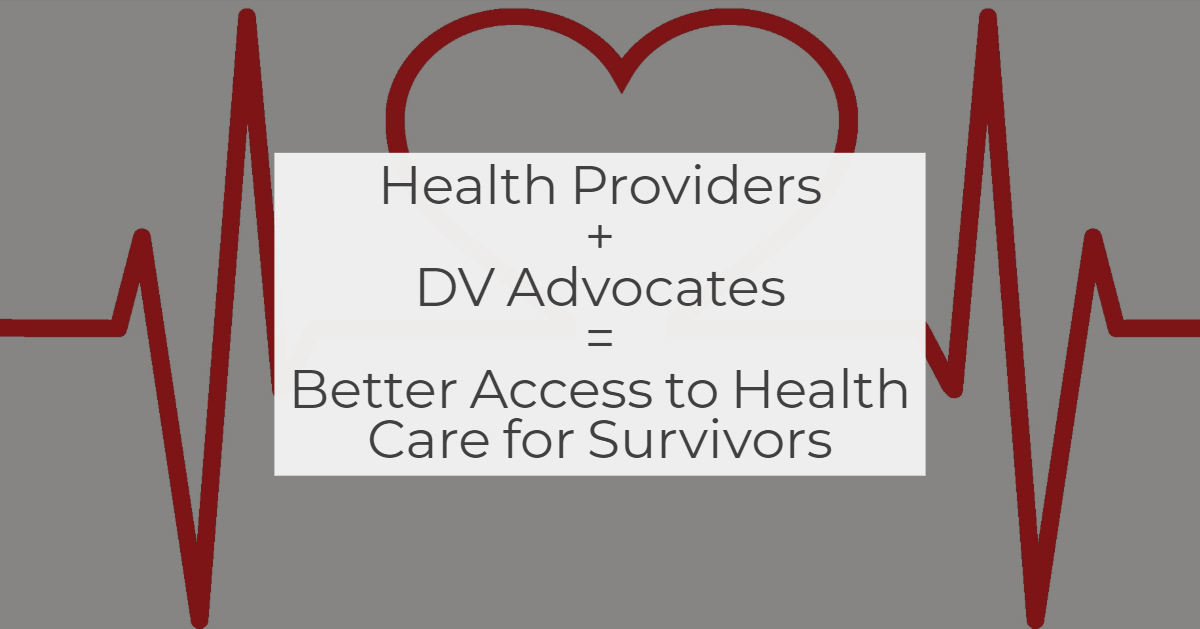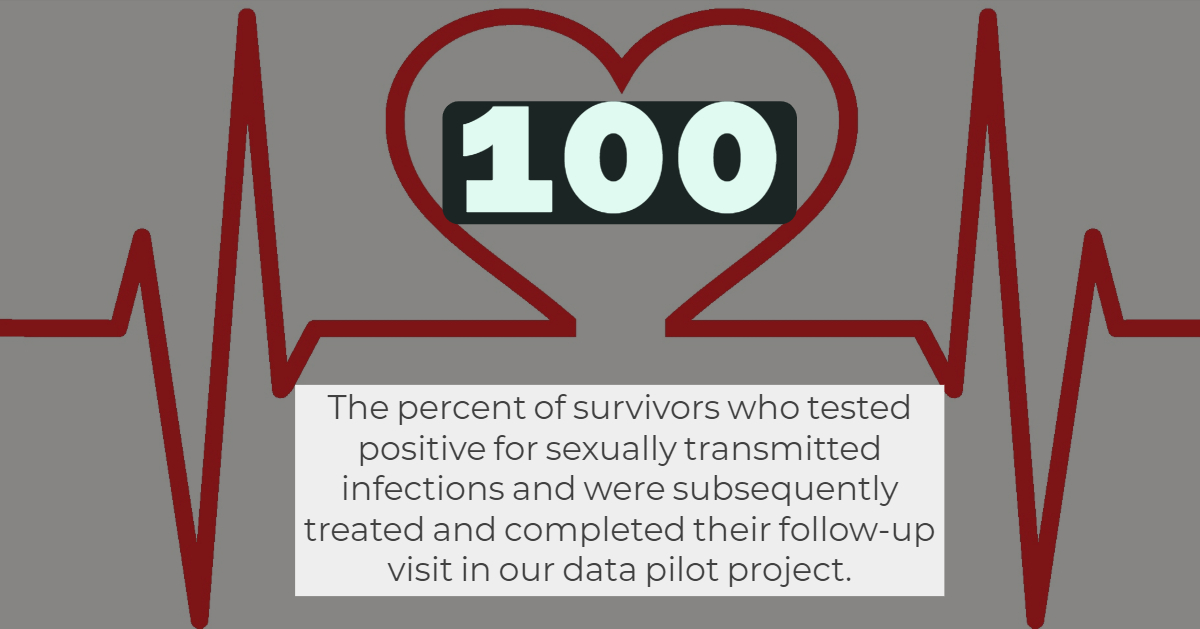How to Improve the Health of Survivors of Domestic Violence

Our preliminary findings from a recent project are clear: partnerships between health care providers and domestic violence advocates can lead to better access to health care for survivors.
In recent years, health and domestic violence (DV) advocacy programs have increasingly partnered together to improve the health and safety of survivors, yet there is little data on the impact that these partnerships have on survivor health access and health outcomes.
In response, in 2017, three such partnerships[1] in California participated in a data pilot project to measure the impact of cross-sector collaboration on helping survivors establish a medical home, increase health care utilization, and improve health outcomes.

Funded by Blue Shield of California Foundation, the data pilot was an important milestone for understanding how health and DV partnerships can improve access to health care for survivors of violence and demonstrate their impact through data. DV pilot sites integrated core principles of health advocacy—addressing and responding to survivor health needs within DV programs—to help survivors make the connection between their relationships and their health, and identify health issues that needed medical attention.
Specifically, the pilot focused on examining the impact of integrating health assessments in DV advocacy programs and creating a system for warm referrals to trusted health partners. Sites used tracking tools and tested a feedback loop with health partners in order to know the outcomes of all referrals made. As a result, DV advocacy programs were able to document whether or not referrals made were successful, led to a scheduled appointment, and resulted in a completed health visit. This involved developing a protocol for compliant data sharing between the organizations—something many in the field are currently trying to implement.
Pilot findings revealed that survivor access to health care was greatly improved as a result of the health advocacy and data strategies that were implemented during this pilot.
The impact on survivor health outcomes was remarkable; for example, 100 percent of survivors who tested positive for sexually transmitted infections were treated and completed their follow-up visit three months post-screening. These stories are powerful examples of the impact this work has on improving survivor health outcomes.

“We hear from programs all the time about how difficult it is to track referral outcomes and share data across sites. Once programs complete a health assessment and refer survivors to health services, they never know the outcome of that effort. As a result of this pilot, we’ve tested a system where cross-sector collaborations can measure and quantify their coordinated efforts to link survivors to health care services. And now, we have evidence showing just how much of an impact health advocacy has on survivor access to care to help improve their health outcomes.”
—Jennifer Haddad Bell, Futures Without Violence
As a result of this work, programs are able to coordinate and provide better quality care for survivors of violence. They are also able to justify their partnership efforts, making the case for funding as well as local and state policy change.
To learn more about the pilot, tune into the webinar The Impact of Health Advocacy on Survivor Health Access: Key findings and recommendations from a data pilot.





